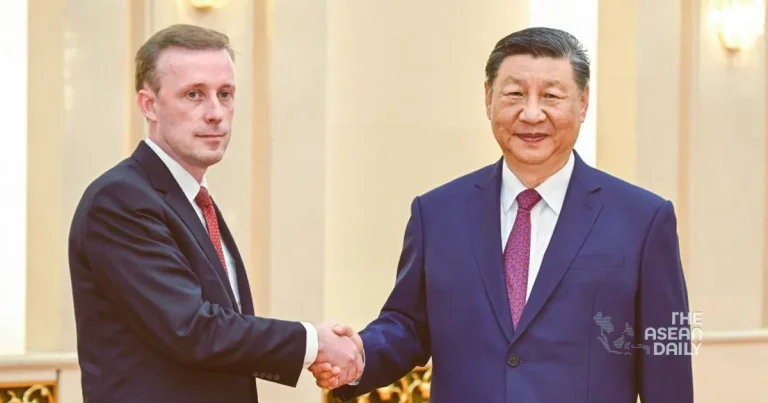29-8-2024 (BEIJING) United States National Security Adviser Jake Sullivan concluded a three-day visit to Beijing on Thursday, capped by a meeting with Chinese President Xi Jinping. The talks, aimed at easing tensions between the world’s two largest economies, come at a crucial juncture ahead of the November US presidential election.
The high-profile meeting, held in the imposing Great Hall of the People, saw President Xi reaffirm China’s commitment to a stable relationship with Washington. “In this changing and turbulent world, countries need solidarity and coordination … not exclusion or regress,” Xi stated, setting a conciliatory tone for the discussions.
Sullivan, representing the Biden administration, conveyed the US President’s dedication to managing the complex bilateral relationship to avoid conflict. He also hinted at future engagement, noting that President Biden “looks forward to engaging with you in coming weeks”.
The White House later confirmed plans for a call between Xi and Biden in the near future, underscoring the importance both sides place on maintaining open lines of communication at the highest levels.
Throughout his visit, Sullivan engaged in wide-ranging discussions covering a gamut of issues that have strained US-China relations. These included the perennial flashpoints of Taiwan and the South China Sea, as well as concerns over Russia and the fentanyl crisis in the United States.
Despite the marathon sessions, significant gaps remain on several key issues. A senior US official, speaking on condition of anonymity, highlighted ongoing tensions regarding China’s actions in the South China Sea, particularly vis-à-vis the Philippines. The official characterised this as an issue likely to persist, stating, “If it’s not this shoal, it’s going to be another feature.”
In a rare diplomatic move, Sullivan also met with General Zhang Youxia, vice chairman of the Central Military Commission and a figure considered by many to be Xi’s key military advisor. This meeting, the first between Zhang and a Biden administration official, focused on enhancing military-to-military communications at working levels.
Sullivan emphasised the shared responsibility of both nations to prevent competition from escalating into conflict or confrontation. The discussions with Zhang also touched upon arrangements for theatre-level commanders to engage in direct communication, a longstanding US goal amidst increased regional military deployments.
The White House reported that Sullivan raised concerns about China’s support for Russia’s defence industrial base and stressed the importance of stability across the Taiwan Strait and freedom of navigation in the South China Sea.
Earlier meetings with China’s top diplomat, Wang Yi, covered a broad spectrum of global issues, including contrasting perspectives on conflicts in the Middle East and Ukraine. Wang emphasised the importance of equality in US-China relations, stating, “The key to the smooth development of China-US interaction lies in treating each other as equals.”




